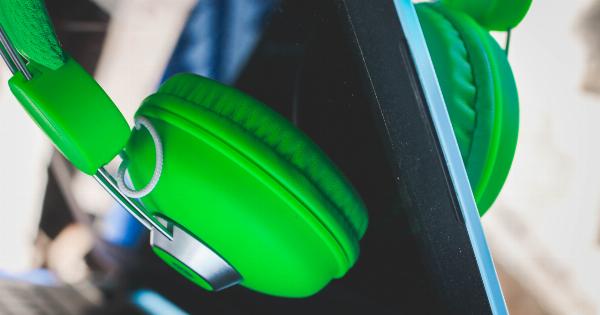Headphones are one of the most commonly used audio devices worldwide. Whether we are commuting to work, jogging, or simply relaxing at home, we plug into our headphones to enjoy our favorite music, audiobook, or podcast.
While headphones are a great way to enjoy our audio content, they may be causing more harm than good. The World Health Organization has estimated that over 1 billion young people worldwide are at risk of hearing loss due to exposure to loud sounds, and headphones could be a significant contributor to this risk.
In this article, we explore the effect of headphones on our hearing health and how we can protect our ears.
Understanding Hearing Loss
Hearing loss is a condition that affects a person’s ability to hear sounds. It can be caused by several factors, including aging, exposure to loud noises, and genetic disorders.
The degree of hearing loss can vary from mild to profound, and it can be temporary or permanent. However, the most common cause of hearing loss is exposure to loud noises, and this can be easily prevented.
How Do Headphones Affect Our Hearing?
Headphones work by converting electrical signals into sound waves that are then transmitted through the ear canal and into the eardrum.
The sound waves cause the eardrum to vibrate, which in turn, stimulates the tiny hair cells in the inner ear, sending electrical signals to the brain, where they are interpreted as sound.
When we listen to music or any audio content through headphones, the sound is delivered directly into the ear canal, bypassing the natural filters that are present when listening to sound in an open environment.
Therefore, the sound pressure levels can be much higher, and this can cause damage to the sensitive hair cells in the inner ear. Over time, repeated exposure to loud sounds can cause permanent damage to these hair cells, leading to hearing loss.
The Risks of Loud Sounds
The risks of exposure to loud sounds are well documented. Studies have shown that even short exposure to loud sounds can cause permanent damage to the hair cells in the inner ear, leading to hearing loss.
The effects of loud sounds are cumulative, and over time, the damage can worsen to the point where hearing aids or cochlear implants may be necessary.
Additionally, exposure to loud sounds can cause tinnitus, a ringing or buzzing sound in the ears that can be very distressing. Tinnitus can be temporary or permanent, and in some cases, it can be a symptom of an underlying medical condition.
How Loud is Too Loud?
The risk of hearing loss depends on the sound pressure level and the duration of exposure. Sound pressure levels are measured in decibels (dB). The higher the number of decibels, the louder the sound.
Experts recommend that we should not be exposed to sounds above 85 dB for more than 8 hours per day. However, most headphones can produce sounds at levels of up to 105 dB, which is extremely loud and can cause permanent hearing damage with prolonged use.
To give you an idea of how loud 105 dB can be, a typical conversation is around 60 dB, and an ambulance siren is around 120 dB. Therefore, prolonged exposure to sounds at or above 105 dB can be potentially dangerous.
How to Protect Your Ears from Headphone-Related Hearing Loss
There are several steps you can take to minimize the risk of headphone-related hearing loss:.
- Use noise-canceling headphones: Noise-canceling headphones can help reduce external noise, allowing you to listen to music at lower volumes.
- Take regular breaks: Avoid using headphones for extended periods, and take regular breaks to give your ears time to rest.
- Follow the 60/60 rule: Listen to music at no more than 60% of the maximum volume for no more than 60 minutes per day.
- Use earplugs in loud environments: If you are in a loud environment, use earplugs or noise-canceling headphones to protect your ears from excessive noise.
- Invest in quality headphones: High-quality headphones can deliver good sound quality at lower volumes, reducing the risk of hearing damage.
Conclusion
Headphones are a convenient and enjoyable way to listen to music and audio content. However, they can also pose a significant risk to our hearing health if used improperly.
Understanding the risks of loud sounds and taking steps to protect our ears when listening to audio through headphones is essential to avoiding headphone-related hearing loss. Follow the recommendations outlined in this article to enjoy your audio content at a safe volume and protect your hearing.





























